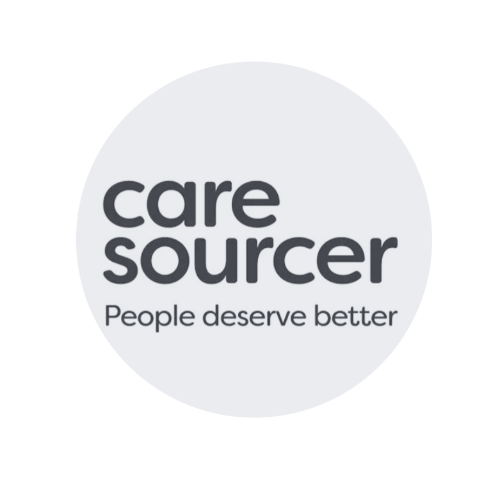Nutrition and Diet: What should a diet look like for a loved one with a Neurodegenerative Disease?

It is no secret that your diet and nutrition are an important part of your health. Everything you eat has a consequence, be it positive or negative, on your body. This is also the case for your loved one with a neurodegenerative disease. In fact, it could be argued this is even more the case as certain foods can have different impacts on the brain, potentially reducing the effects of the disease.
Thanks to the various nutrients from different foods, diets can be used to manage the symptoms of diseases that impact the brain, such as Dementia, Parkinson’s Disease or even Motor Neurone Disease.
The LuxuryCare care homes across Poole and Bournemouth each have their own in-house chef and kitchen team who prepare home-cooked meals for our residents. We understand the importance of the right diet and the impact it can have on your loved one.
In this blog, we share how certain foods can impact your loved one’s condition and symptoms.
The Importance of Diet in Supporting Brain Health
Just like any other part of our body, the brain needs certain nutrients to function and stay healthy.
Examples of nutrients and their impacts include:
- Omega 3 – helps memory and cognitive function
- Vitamins and minerals – help with learning, reasoning and solving problems
- Anti-oxidants – help protect the brain
- Sugars – give the brain energy
A neurodegenerative disease impacts the function and health of the brain in a number of ways, meaning specific nutrients are needed to try and reduce their impact.

Components of a Brain-Healthy Diet
There are several elements that you should strive to include in a diet for your loved one with a neurodegenerative disease.
Anti-Inflammatory foods
Some neurodegenerative diseases can cause inflammation of parts or all of the brain, which impacts its function.
Including foods that have omega-3 fatty acids can help to reduce the inflammation of the brain.
Foods with this include:
- Fatty fish such as salmon and mackerel
- Walnuts
- Chia seeds
- Flaxseeds
With the swelling reduced, neuron communication can be improved, and overall cognitive function increased.
Anti-Oxidant Rich Food
Poor diets and a lack of anti-oxidant-rich food can lead to oxidative stress, where there is an imbalance of free radicals and anti-oxidants in the body.
This imbalance has been linked to many neurodegenerative diseases, highlighting the importance of anti-oxidant foods as part of a diet after a diagnosis.
If your loved one’s body is experiencing oxidative stress, the damage on the brain cells from the disease can accelerate, meaning your loved one will deteriorate quickly.
Foods that can reduce this are:
- Fruits: Blueberries, strawberries, oranges.
- Vegetables: Spinach, kale, broccoli.
- Nuts and Seeds: Almonds, sunflower seeds.
- Beverages: Green tea.
Ensuring these are part of your loved one’s diet can help protect their brain cells from damage caused by free radicals.
Vitamin B-Rich Foods
B vitamins such as B6, B12 and Folate are essential for brain function as they support neurotransmitter production and reduce homocysteine levels, which are linked to cognitive decline.
It is believed that neurodegenerative diseases also mean an increase in homocysteine levels, making the inclusion of B vitamins all the more essential.
Foods that you can include with these nutrients include:
- Eggs
- Leafy greens
- Whole grains
- Fortified cereals
- Dairy products
These will help to lower the homocysteine levels and improve brain function.
Vitamin D
Another vitamin that has been heavily linked to neurodegenerative diseases is vitamin D. Vitamin D deficiency is believed to increase the risk of cognitive decline and dementia.
Therefore, a lack of this nutrient in your loved ones’ diet could quicken the decline of their cognitive functions.
Foods that have vitamin D in them include:
- Fortified milk
- Fatty fish
- Egg yolks
You may also know that sunlight exposure is also a great way to get vitamin D, meaning a gentle stroll or tea in the garden can do more than move the body and give them some fresh air and a change of scenery.
Hydration
You will know the importance of staying hydrated, no matter what your health condition. But it can be even more imperative when your loved one has a neurodegenerative disease.
Dehydration can exacerbate confusion, fatigue, and cognitive issues, accentuating common symptoms of dementia and other neurodegenerative diseases.
While regularly drinking water and other beverages is the best way to stay hydrated, sometimes, getting your loved one to drink water can be difficult, especially if you aren’t caring for them all the time.
Foods that can help with this include:
- Cucumber
- Watermelon
- Soups
Ensuring your loved one is well hydrated can reduce their confusion, they can have more energy, and the deterioration of other cognitive functions may slow down.
Our top tip to encourage your loved one to drink is to set reminders or use a water bottle with times marked on it so they have something to aim for and jog their memory.
Crafting a Balanced Diet Plan for Your Loved One
As with your own diet and food, providing a well-balanced diet for your loved one with a neurodegenerative disease will require planning and thought.
Here are some practical meal suggestions, tips for accommodating dietary restrictions, and advice on seeking professional guidance.
Sample One-Day Diet Plan
Breakfast
- Whole-grain toast with mashed avocado sprinkled with flaxseeds and a side of fresh blueberries or strawberries.
- Green tea (rich in anti-oxidants).
- Greek yoghurt (fortified with Vitamin D) topped with walnuts, chia seeds, and honey.
- A glass of orange juice or fortified plant-based milk.
Mid-Morning Snack
- A handful of mixed nuts (walnuts, almonds, sunflower seeds).
- Sliced cucumber and carrot sticks with hummus.
Lunch
- Grilled salmon (rich in omega-3s) with a quinoa salad mixed with spinach, cherry tomatoes, and olive oil dressing. Steamed broccoli on the side.
- Lentil soup (high in folate and fibre) with a slice of whole-grain bread.
- A fresh apple or pear.
Afternoon Snack
- Dark chocolate (70% cocoa or higher) with a cup of herbal tea.
- Sliced bell peppers with guacamole or a small serving of edamame.
Dinner
- Baked chicken breast with roasted sweet potatoes and sautéed kale.
- A glass of fortified milk or a plant-based alternative.
- Stir-fried tofu with mixed vegetables (bell peppers, zucchini, mushrooms) served over brown rice.
- A fresh fruit salad for dessert.
Evening Snack (Optional)
- A small bowl of oatmeal with almond milk and a sprinkle of cinnamon.
- Herbal tea to promote relaxation.
Of course, your loved one might have additional dietary requirements that need to be accommodated; this can make meal planning slightly more complicated. So, here are a few tips for various dietary needs:
Allergies or intolerances
- Swap dairy products for fortified plant-based alternatives.
- Opt for gluten-free grains like quinoa or rice if gluten intolerance is an issue.
- Chewing and swallowing issues.
- Serve soft, easy-to-eat foods such as mashed sweet potatoes, soups and smoothies.
- Use thickening agents for liquids if your loved one has difficulty swallowing.
Additional tips to encourage enjoyment of meals
- Adapt recipes to include personal preferences and favourite foods and drinks or to keep them familiar.
- Offer smaller, nutrient-dense meals if your loved one has a reduced appetite.
- Incorporate snacks throughout the day to meet caloric needs without overwhelming them.
Meeting Nutritional and Dietary Needs At LuxuryCare
Nutrients and diets can have a big impact on your loved one and their neurodegenerative disease. If the right food is provided in their diet, you can see some really positive impacts on their brain function.
At our care homes, we have professional chefs and kitchen teams who understand the nutrients in each food group and ingredient so they are able to create an interesting, flavoursome menu for our residents that will provide the right nutrition for their needs.
While one of life’s simple pleasures, we know that everyone has a unique personal taste and dietary requirements, which is why we created a personalised food passport that outlines the dietary needs and preferences of each resident before they move in.
Each day, we get local, fresh ingredients that are used to create menus for everyone to enjoy.
Throughout the day, we also have a range of snacks and beverages available for your loved one to help themselves to, so that they can ensure they meet their calorie intake with small meals and snacks.
If you want to learn more about how we use nutrition and diets to improve the brain health of your loved one with a neurodegenerative disease, speak to our friendly team.
We recommend visiting one of our care homes to meet our team and have a face-to-face conversation where we can answer your questions and you can join a meal time to try our home-cooked meals while meeting some of our residents.
Call us on 01202 037373 or complete our online contact form to arrange a visit to your chosen care home.















